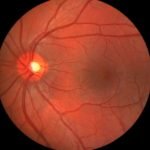College Students Educated on Dietary Supplements are More Likely to Use Them Properly
Node Smith, ND
An interesting study speaks to the need for education around dietary supplements in younger adults. The study found that young adults educated about dietary supplements while in college are more likely to use them properly.1
A move toward a more health conscious culture?
More and more individuals are utilizing dietary supplements, which could signify a move toward a more health conscious culture. However, education around these supplements is important so that people are sourcing supplements well, using appropriate dosages, and have appropriate expectations when using them. Also, education about the potential for contamination of dietary supplement products is important for obvious safety reasons, and to drive consumers to demand higher quality products from an informed position.
Research study utilized an anonymous online survey of college students
The research study utilized an anonymous online survey of college students who were either enrolled in a Health and Wellness Studies minor or not enrolled in the minor. The survey assessed perception of dietary supplements, use and knowledge. The overall intention of the survey was to gain insight as to whether education on dietary supplements changed use. Previous studies have suggested that education at the college level on dietary supplements is needed, but no follow-up studies have been conducted.
The data showed that individuals with education on dietary supplements do demonstrate different, and more responsible patterns of supplement use.
Major concern for college aged student use: dietary supplements products heavily peddled via social media
A major concern for college aged student use of dietary supplements are products that are heavily marketed using social media and other online channels that contain ingredients which may affect liver and kidney function, or are contaminated with pharmaceutical ingredients. Products that fall into categories of weight loss, muscle building, and cognitive enhancement as well as sexual enhancement are the most often seen to cause these issues. Because the FDA does not regulate a lot of these types of dietary supplements, it is largely up to the consumer to be educated in the use of these products and the integrity of the companies producing them.
Education of individuals
Education of individuals at a time when many lifestyle habits are being established is an important consideration. From a healthcare perspective, this patient population may require specific attention to dietary supplement use and current education around these supplements.
Source:
- Begdache L, Kianmehr H, Heaney CV. College Education on Dietary Supplements May Promote Responsible Use In Young Adults. J Diet Suppl. 2018;:1-14.
 Node Smith, ND, is a naturopathic physician in Portland, OR and associate editor for NDNR. He has been instrumental in maintaining a firm connection to the philosophy and heritage of naturopathic medicine among the next generation of docs. He helped found the first multi-generational experiential retreat, which brings elders, alumni, and students together for a weekend camp-out where naturopathic medicine and medical philosophy are experienced in nature. Four years ago he helped found the non-profit, Association for Naturopathic ReVitalization (ANR), for which he serves as the board chairman. ANR has a mission to inspire health practitioners to embody the naturopathic principles through experiential education. Node also has a firm belief that the next era of naturopathic medicine will see a resurgence of in-patient facilities which use fasting, earthing, hydrotherapy and homeopathy to bring people back from chronic diseases of modern living; he is involved in numerous conversations and projects to bring about this vision.
Node Smith, ND, is a naturopathic physician in Portland, OR and associate editor for NDNR. He has been instrumental in maintaining a firm connection to the philosophy and heritage of naturopathic medicine among the next generation of docs. He helped found the first multi-generational experiential retreat, which brings elders, alumni, and students together for a weekend camp-out where naturopathic medicine and medical philosophy are experienced in nature. Four years ago he helped found the non-profit, Association for Naturopathic ReVitalization (ANR), for which he serves as the board chairman. ANR has a mission to inspire health practitioners to embody the naturopathic principles through experiential education. Node also has a firm belief that the next era of naturopathic medicine will see a resurgence of in-patient facilities which use fasting, earthing, hydrotherapy and homeopathy to bring people back from chronic diseases of modern living; he is involved in numerous conversations and projects to bring about this vision.










